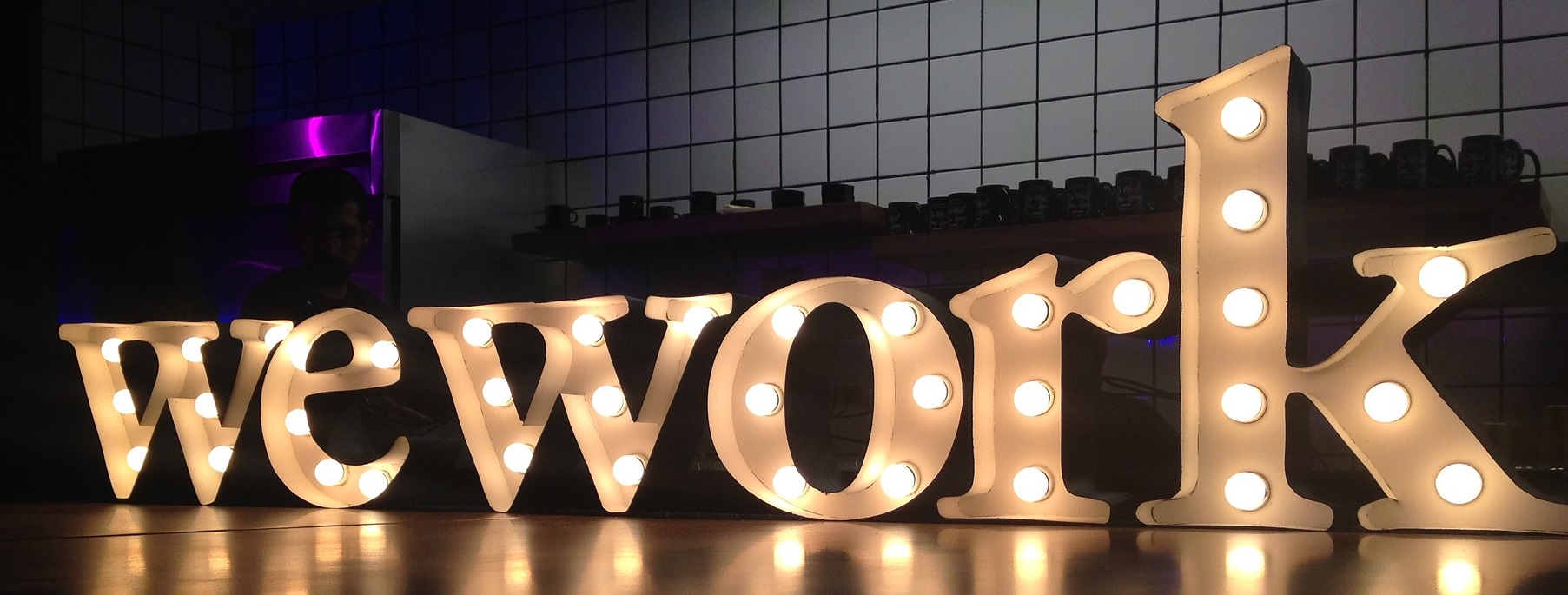The Sharing Economy: Does WeWork Work?
“Merry New Year!”
Why not recall Eddie Murphy in the classic Trading Places and start the new year off with a smile?
I usually start my new year attending GSU’s industry conference Views From the Top. The 2019 version did not disappoint. This year, I was intrigued by the Industry Panel: “New Faces, New Spaces, and the Shared Economy.”
Ideas being birthed from the sharing economy concept should be of great interest to us folks in the commercial real estate industry. Current innovations will certainly impact the CRE business—and in many cases, change the way an entire segment of the industry does business.
Just think about WeWork—one concept that is disrupting the office market—and whose rep sat on the conference’s panel.
I Work, You Work = WeWork?
Many different opinions about WeWork exist, but regardless of what you think, they are a force in the office market that cannot be ignored.
WeWork continues to lease bigger and bigger spaces and is even buying buildings. The strategy of making long-term investments with short-term flexible leases seems mighty risky. This approach works when the tide is rising (aka market is good) and when the climate is healthy, resulting in significant new business formation, but what happens when the music stops? (Because it always does.)
Hitting the Target
WeWork understands the demand for office space is more dynamic than ever. They address both startups and small businesses, who have growing space needs, as well as more established businesses, who want to be nimble to compete in a rapidly changing marketplace.
In a recent NREI article, WeWork defends its business plan (even facing an economic downturn) in the following ways:
- Expects strong demand for co-working space growth
- Expects companies to want flexible spaces, not long-term leases, if downturn occurs
- Expects more stability with 30% of members from companies with over 1,000 employees
- Expects to secure more management agreements with landlords, to share upside and reduce risk
Not Without Its Challenges
In my opinion, WeWork faces some significant headwinds.
- They do not have a monopoly on the concept. Ordinary landlords can easily replicate the model.
- They are not profitable; their growth is driven by an infusion of investor capital, not cash flow. Their largest investor recently scaled back its commitment to fund future expansion.
- With many short-term clients, obtaining long-term financing would seem problematic.
- The empire is striking back—established competitors, like Regus, are fighting with updated concepts.
- They seem to be just another landlord with a “cool concept.”
I’m not alone in my opinion. NREI reports respondents in a recent WeWork survey see, “…the high level of competition in the co-working sector and lack of a strong balance sheet as some of the major reasons they question WeWork’s ability to survive in the long-term.”
Staying Power. Does WeWork Got It?
New players respond to market shifts and, in today’s world, demographic changes (aka the millennials). But I must ask what happens when the competition catches up and the market softens? In this case, I fear WeWork could go down and take the landlords who have made big bets with them.
I think that WeWork, Roam, and SPACES are forward-thinking—the entrepreneurs saw a change in technology and culture and tried to change the office space model to accommodate them. They grew ideas based on these observations and acted upon them. That’s smart. That’s innovation.
But the question remains—can they sustain it? We’ll see.
Check back for more discussion on the sharing economy in upcoming blogs.



